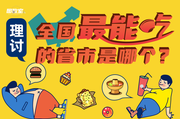昨晚,薛之谦重庆演唱会与观众互动环节火了。
镜头随机捕捉到一位女生,薛之谦问,“你几个人来的?”女生举起一个手指表示“一个人来的”,一旁的男生笑容突然暂停……

网友热评:纯爱沸羊羊与绿茶美羊羊的故事。网友让男主开直播,没想到男主真的开了直播,于是打赏礼物不停有绿色“复古头巾”……

按男主的说法,女主是主播,两人去年已分手,和女主一起去看演唱会是帮其完成心愿。他当时连续问了三遍,“你说什么,你说什么,你说什么……”
借(cèng)此(gè)机(rè)会(diǎn),我们就来看看纽约时报的这篇文章《学会放下,即是菩提》。
🤔️小作业:
1. What is the main lesson conveyed by the story of the two monks?
A) It is important to help others, regardless of their gratitude.
B) Monks should always adhere to their cultural practices.
C) Holding onto emotional grievances can burden an individual.
D) Younger individuals often make wiser decisions than their elders.
2.According to the article, what are the consequences of NOT letting go of negative emotions?
A)Potential feelings of anger, frustration, and resentment
B) Increased happiness and satisfaction
C)Improved emotional resilience and patience
D) Better relationships with others

无注释原文:
The Cost of Holding On
From: The New York Times
Let's start with a story from Jon Muth's book “Zen Shorts:”
Two traveling monks reached a town where there was a young woman waiting to step out of her sedan chair. The rains had made deep puddles and she couldn't step across without spoiling her silken robes. She stood there, looking very cross and impatient. She was scolding her attendants. They had nowhere to place the packages they held for her, so they couldn't help her across the puddle.
The younger monk noticed the woman, said nothing, and walked by. The older monk quickly picked her up and put her on his back, transported her across the water, and put her down on the other side. She didn't thank the older monk; she just shoved him out of the way and departed.
As they continued on their way, the young monk was brooding and preoccupied. After several hours, unable to hold his silence, he spoke out. “That woman back there was very selfish and rude, but you picked her up on your back and carried her! Then, she didn't even thank you!”
“I set the woman down hours ago,” the older monk replied. “Why are you still carrying her?”
There is an actual cost to holding onto things we should let go of. It can come in the form of anger, frustration, resentment or something even worse. The question is, can you really afford to keep paying the bill?
The faster we learn to drop our emotional dead weight, the more room we create for something better. I'm talking about everything from stewing about the guy who cut you off in traffic this morning to still refusing to forgive an old friend for an event 20 years ago.
We have only so much bandwidth. We have only so much time. We only have so much energy. Do we really want to invest any of our precious resources – financial or otherwise – into something that will return nothing but misery?
My question for you is, “What's one thing you can set down this week?”
Go ahead and pick something. A fight with your spouse, something a politician said, your team losing the big game. Pick it, drop it and then pause. For just a moment, simply pause and savor what it feels like to no longer carry that burden and pay that price.
Then, I want you to invest that extra into something more productive. If it's extra time, go for a walk. If it's extra peace, take five deep breaths. If it's extra money because you decided to just pay the stupid traffic ticket instead of letting it sit on your desk accruing late fees, then take that extra money and invest it in something that makes you happy.
Play with your kids. Take a nap. Just do something that makes you feel the opposite of how you felt before you let go. I can guarantee you, this is one investment you'll never regret.
- ◆ -
注:完整题目见本文开头;中文文本为纽约时报官方译文,仅供参考
含注释全文:
The Cost of Holding On
学会放下,即是菩提
From: The New York Times
Let's start with a story from Jon Muth's book “ZenShorts:”
我们先来讲讲琼·穆特(Jon Muth)的书《禅的故事》(Zen Shorts)里的一个故事。
Zen
Zen /zen/ 表示“禅,禅宗(佛教派别之一,强调禅定而止息杂虑)”,英文解释为“a form of Buddhism, originally developed in Japan, that emphasizes that religious knowledge is achieved through emptying the mind of thoughts and giving attention to only one thing, rather than by reading religious writings”如:Zen Buddhism 禅宗。
zen 作形容词,表示“放松的;(对无法改变的事情)不担心的”,英文解释为“relaxed and not worrying about things that you cannot changezen”举个🌰:Don't worry about doing the right thing with your baby - be more zen about it and you'll be happier. 不要担心为自己的孩子你是否采取了正确的行动——越放松你就会越高兴。
Two travelingmonksreached a town where there was a young woman waiting to step out of hersedan chair. The rains had made deeppuddlesand she couldn't step across withoutspoilingher silkenrobes. She stood there, looking verycrossand impatient. She wasscoldingherattendants. They had nowhere to place the packages they held for her, so they couldn't help her across the puddle.
两名游方僧人来到一个小镇,看见一名年轻女子正等着下轿。轿子前面有雨水留下的水坑,她跨过去肯定会弄脏丝绸裙子。她站在那里,看起来非常恼火,很不耐烦的样子。她在训斥自己的侍从。他们手里拿着她的包裹,没地方放,无法帮她跨过水坑。
monk
monk /mʌŋk/ 表示“修道士;僧侣”,英文解释为“a member of a group of religious men who do not marry and usually live together in a monastery”
对比:
bonze/bɒnz/表示“(日本或中国的)和尚,僧人”,英文解释为“a Japanese or Chinese Buddhist monk”
sedan chair
sedan chair /sɪˈdæn ˌtʃeər/ 表示“(旧时的)轿子”,英文解释为“in the past, a seat for one person surrounded by walls and with horizontal poles at either side, designed to be lifted and carried by two people”
sedan /sɪˈdæn/ 表示“小轿车;(三厢)四门轿车”,英文解释为“a car with four doors and a boot/trunk (= space at the back for carrying things) which is separated from the part where the driver and passengers sit”如:a five-seater family sedan 五座家庭式轿车。
puddle
puddle /ˈpʌd.əl/ 表示“水坑;(尤指)雨水坑”,英文解释为“a small pool of liquid on the ground, especially from rain”
spoil
spoil /spɔɪl/ 1)表示“破坏;糟蹋;毁掉”,英文解释为“to destroy or reduce the pleasure, interest, or beauty of something”举个🌰:He tried not to let the bad news spoil his evening. 他努力不让那个坏消息破坏他晚上的兴致。
2)表示“溺爱,娇惯;宠坏”,英文解释为“to allow a child to do or have everything that it wants to, usually so that it expects to get everything it wants and does not show respect to other people”
3)表示“(使)(食物)变质,(使)变坏”,英文解释为“When food spoils or is spoiled, it is no longer good enough to eat.”举个🌰:The dessert will spoil if you don't keep it in the fridge. 如果你不把甜点放在冰箱里,它会坏掉的。
robe
robe /rəʊb/ 表示“长袍,罩袍;(尤指特别正式场合穿的)袍服,礼袍”,英文解释为“a long, loose piece of clothing worn especially on very formal occasions”
cross
cross /krɒs/ 熟词僻义,作名词,表示“混合物;杂种;混血儿”,英文解释为“a mixture of two different things that have been combined to produce something new”举个🌰:The play was a cross between a farce and a tragedy. 这出戏把闹剧和悲剧交织为一体。
📍a cross between A and B的表达,经济学人一篇讲述美国防疫主题商店的文中,就提到:The urban-survivalist shop, near Macy's department store, looks like a cross between an Apple Store and a pharmacy. 字面意思就是,看起来就像是苹果商店和药店的结合体。
作形容词,英式,cross /krɒs/ 表示“恼怒的;愤怒的;生气的”,英文解释为“annoyed or angry”举个🌰:My Dad gets cross (with me) if I leave the kitchen in a mess. 要是我把厨房搞得乱七八糟,我爸爸会生(我)气的。
scold
scold /skəʊld/ 表示“责骂,责备”,英文解释为“to speak to someone angrily because you disapprove of their behaviour”举个🌰:His mother scolded him for breaking her favourite vase. 母亲因为他打碎了她最心爱的花瓶而责骂他。
attendant
attendant /əˈten.dənt/ 表示“服务员;侍者”,英文解释为“someone whose job is to be in a place and help visitors or customers”如:a cloakroom/museum attendant 衣帽间服务员/博物馆解说员。也可表示“(要人的)侍从,随从”,英文解释为“someone whose job is to travel or live with an important person and help him or her”举个🌰:The Prince was followed by his attendants. 王子由其侍从陪同。
The younger monk noticed the woman, said nothing, and walked by. The older monk quickly picked her up and put her on his back, transported her across the water, and put her down on the other side. She didn't thank the older monk; she justshovedhim out of the way anddeparted.
年轻僧人看见了那名女子,什么也没说,径直走开了。年长僧人则马上把她背起来,跨过水坑后把她放下。她没有说谢谢,把他推开就走了。
shove
shove /ʃʌv/ 1)表示“推,推挤,推撞”,英文解释为“to push someone or something forcefully”举个🌰:She was jostled and shoved by an angry crowd as she left the court. 她离开法庭时,被愤怒的人群推来搡去。
2)表示“乱放;随便放;乱丢;乱塞”,英文解释为“to put something somewhere in a hurried or careless way”举个🌰:We shoved a copy of the newsletter beneath their door. 我们在他们的门下塞了一份时事通讯。
depart
depart /dɪˈpɑːt/ 表示“出发,动身,启程”,英文解释为“to go away or leave, especially on a journey”举个🌰:The plane departs at 6 a.m. 那架飞机早晨6点钟起飞。
As they continued on their way, the young monk wasbroodingandpreoccupied. After several hours, unable to hold his silence, he spoke out. “That woman back there was very selfish and rude, but you picked her up on your back and carried her! Then, she didn't even thank you!”
这两个僧侣继续赶路,年轻的那位闷闷不乐,一副心事重重的样子。几个小时后,他忍不住说道:“那个女的真是又自私又无礼,你背着她跨过水坑,她连句谢谢都不说!”
brooding
brooding /ˈbruː.dɪŋ/ 表示“令人忧心忡忡的”,英文解释为“making you feel uncomfortable or worried, as if something bad is going to happen”举个🌰:He stood there in the corner of the room, a dark, brooding presence. 他站在房间的角落里,阴沉忧虑。
preoccupied
preoccupied /ˌpriːˈɒk.jə.paɪd/ 表示“全神贯注的,入神的;心事重重的”,英文解释为“thinking or worrying about something too much”举个🌰:She's been very preoccupied recently because her mother has been very ill. 近来由于母亲病情严重,她无暇他顾。
“I set the woman down hours ago,” the older monk replied. “Why are you still carrying her?”
“我几个小时前就把那个女人放下了,”年长僧人回答道。“你为什么还放不下呢?”
There is an actual cost to holding onto things we should let go of. It can come in the form of anger,frustration,resentmentor something even worse. The question is, can you really afford to keep paying the bill?
把本该放下的事存在心头,真的会让人付出代价。那些代价可能是生气、沮丧、愤怒,甚至是更糟糕的感觉。问题是,你真的负担得起不断付出的代价吗?
frustration
frustration /frʌsˈtreɪ.ʃən/ 表示“(因不能满足需求而)沮丧;令人沮丧的事物”,英文解释为“the feeling of being annoyed or less confident because you cannot achieve what you want, or something that makes you feel like this”举个🌰:I could sense his frustration at not being able to help. 我可以感觉到他因无力帮忙而心感沮丧。
resentment
resentment /rɪˈzent.mənt/ 表示“怨恨”,英文解释为“a feeling of anger because you have been forced to accept something that you do not like”举个🌰:He harbours a deep resentment against his parents for his miserable childhood. 他因自己的悲惨童年而对父母怀有深深的怨恨。
The faster we learn to drop our emotionaldead weight, the more room we create for something better. I'm talking about everything fromstewingabout the guy whocut you offin traffic this morning to still refusing to forgive an old friend for an event 20 years ago.
我们越快学会放下情绪负担,就能给更美好的事物留出更多空间。我说的是所有的情绪负担,包括因为早上有个家伙开车加塞而让你耿耿于怀,或者因为20年前的一件事而始终拒绝原谅一位老友。
dead weight
dead weight /ˌded ˈweɪt/ 表示“难以搬动的重物;沉重的人(或物);重荷;累赘”,英文解释为“the heaviness of a person or object that cannot or does not move by itself”
stew
stew /stjuː/ 1)表示“炖,煨,用文火煮”,英文解释为“to cook meat, fish, vegetables, or fruit slowly and gently in a little liquid”
2)表示“生气,发火”,英文解释为“to be angry or worried”举个🌰:You're not still stewing about what happened yesterday, are you? 你不会还在为昨天的事生气吧?
3)表示“消磨时间,无所事事”,英文解释为“to do nothing useful”举个🌰:With jobs so scarce, many young people spend long hours with little to do but drink and stew. 工作机会很少,许多年轻人除了喝酒和消磨时间外,整天无所事事。
cut sb off
同cutsb up,表示“超车抢到…前面”,cut sb off通常被动,表示“挂断…的电话;使…电话掉线”,英文解释为“to stop people from continuing a phone conversation by breaking the phone connection”举个🌰:We got cut off before she could give me directions. 她还没给我指示我们的电话就断掉了。
We have only so muchbandwidth. We have only so much time. We only have so much energy. Do we really want to invest any of our precious resources – financial or otherwise – into something that will return nothing butmisery?
我们的时间精力是有限的。我们只有这么多时间。我们只有这么多精力。我们真的想把经济上或其他方面的宝贵资源投入到一件只会带来痛苦的事情上吗?
bandwidth
bandwidth /ˈbænd.wɪtθ/ 1)表示“带宽”,英文解释为“a measurement of the amount of information that can be sent between computers, through a phone line, etc.”举个🌰:The system will handle signals that need high bandwidth, for instance those that encode TV pictures. 这个系统可以处理需要高带宽的信号,比如编码压缩过的电视图像信号。
2)表示“处理大信息或复杂情况所需的时间、精力和综合能力”,英文解释为“the ability or time to deal with a situation, especially one that involves a large amount of information or a number of problems”举个🌰:I don't have the bandwidth to read stuff I know isn't going to lead to productive discussion. 我没有精力去看那种没什么正面意义的东西。
misery
misery /ˈmɪz.ər.i/ 表示“痛苦,悲惨”,英文解释为“great unhappiness”举个🌰:We have witnessed the most appalling scenes of human misery. 我们目睹了最令人震惊的人间苦难。
My question for you is, “What's one thing you can set down this week?”
我的问题是:“这一周你能放下哪件事?”
Go ahead and pick something. A fight with yourspouse, something a politician said, your team losing the big game. Pick it, drop it and thenpause. For just a moment, simply pause andsavorwhat it feels like to no longer carry that burden and pay that price.
挑一件吧。跟配偶的一次争吵,一名政客说的话,你的队输掉的一场重要比赛。把它挑出来,放下,然后暂停。就暂停一会儿,享受一下不再承受那个负担、不再付出代价的感觉。
spouse
spouse /spaʊs/ 表示“配偶”,英文解释为“a person's husband or wife”举个🌰:In 60 percent of the households surveyed both spouses went out to work. 在60%的被调查家庭中,夫妻双方都外出工作。
pause
pause /pɔːz/ 表示“暂停,停顿”,英文解释为“to stop doing something for a short time”举个🌰:He paused and thought for a moment. 他停下来想了一会儿。
savor
美式 savor /ˈseɪvə/ 英式 savour 表示“细品,享用”,英文解释为“to enjoy food or an experience slowly, in order to enjoy it as much as possible”举个🌰:It was the first chocolate he'd tasted for over a year, so he savored every mouthful. 这是他一年多来吃到的第一块巧克力,因此他每一口都细细品尝。
📍《经济学人》(The Economist)一篇讲述特朗普作为商人一面的文章中提到:It was a high point of their relationship that the Brit still savours. 这是二人交情的一个高潮,他到今天还在回味。
Then, I want you to invest that extra into something more productive. If it's extra time, go for a walk. If it's extra peace, take five deep breaths. If it's extra money because you decided to just pay the stupid traffic ticket instead of letting it sit on your deskaccruinglate fees, then take that extra money and invest it in something that makes you happy.
然后,把省下的东西投入到更有益的事情上。如果你省下的是时间,那就去散个步。如果你是获得了平静,那就深呼吸五下。如果你决定支付那张愚蠢的交通罚单而不是让它留在你的书桌上累积滞纳金,那么把省下的钱花到让你快乐的东西上吧。
accrue
accrue /əˈkruː/ 表示“积累;(逐渐)增加,增多”,英文解释为“to increase in number or amount over a period of time”举个🌰:Little benefit will accrue to the city (= it will receive little benefit) from the new transport links. 新的道路修建计划几乎不会给该城市带来什么利益。
Play with your kids. Take anap. Just do something that makes you feel the opposite of how you felt before you let go. I can guarantee you, this is one investment you'll never regret.
陪孩子玩。打个盹儿。做一些让你获得与释怀前相反感受的事情。我可以向你保证,这是你永远不会后悔的一项投入。
nap
nap /næp/ 可以作动词,也可以作名词,表示“(尤指日间的)打盹,小睡”,英文解释为“a short sleep, especially during the day”举个🌰:Grandpa usually takes/has a nap after lunch. 爷爷通常在午饭后小睡片刻。
- 词汇盘点 -
Zen、 monk、 sedan chair、 puddle、 spoil、 robe、 cross、 scold、 attendant、 shove、 depart、 brooding、 preoccupied、 frustration、 resentment、 dead weight、 stew、 cut sb off、 bandwidth、 misery、 spouse、 pause、 savor、 accrue、 nap
- 词汇助记 By ChatGPT -
A Zen monk, preoccupied and brooding, scolded his attendants as they shoved his sedan chair through a puddle, spoiling his robe. Amidst frustration and resentment, he paused, realizing the misery of being a dead weight. Cutting off his stewing, he savored a nap, accruing peace.







